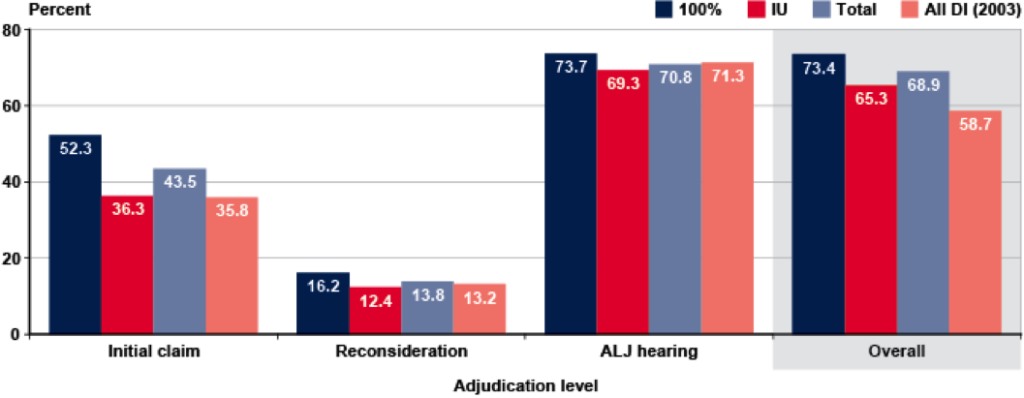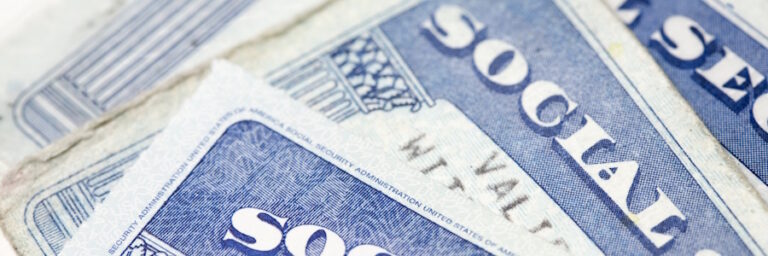
A recent study published by the Social Security Administration contains some interesting facts about the number of totally disabled veterans who do not qualify for Social Security Disability benefits (SSDI). Between 2000 and 2006, more than half of veterans who were considered totally disabled by the Veteran’s Administration (or 100% VA disabled) due to service-related impairments were denied SSDI benefits upon their initial application. In addition, most veterans considered to have total “Individual Unemployability” (or 100% IU) were also turned down for SSDI benefits. (Veterans may receive VA disability benefits without regard to their IU rating.) At the initial application stage, Social Security approved only 43.5% of the applications of totally disabled veterans. Even after all appeals had been exhausted, Social Security still turned down 31% of claims filed by veterans rated 100% disabled.
The chart below shows the SSDI allowance rate for totally disabled veterans compared to applicants from the general population at three stages of the SSDI claims process, including 1) initial application; 2) reconsideration; and 3) hearing before an Administrative Law Judge (ALJ). It also looks at the allowance rate for veterans and the general population overall, after all appeals have been exhausted before the Social Security Administration and federal courts.
As shown below, while 100% disabled veterans had higher approval rates compared to general SSDI applicants at the initial level, their approval rates after reconsideration and hearing were similar to those from the general population.
Allowance rates for first DI claims filed by veterans after receiving VA disability ratings of 100% or IU during fiscal years 2000–2006, by VA rating and level of adjudication (with comparisons to allowance rate for all disability insurance (DI) worker claims filed in calendar year 2003.














